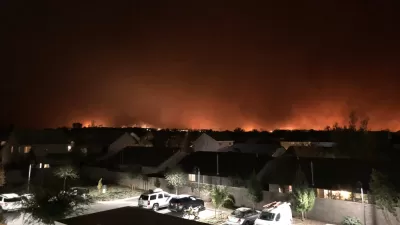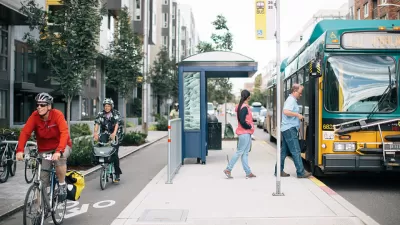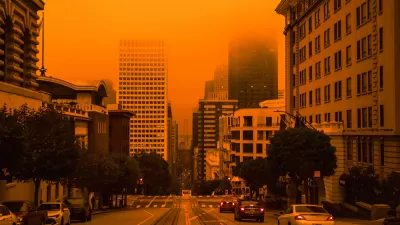As development pushes into more wildfire-prone areas and climate change makes extreme weather conditions more common, more Americans are experiencing the destructive impacts of climate disasters.

Last year, over 40 percent of Americans lived in counties struck by climate change-induced extreme weather events, while more than 80 percent experienced at least one day of extreme heat, according to research from The Washington Post, report Sarah Kaplan and Andrew Ba Tran.
Disasters affected regions across the country, with wildfires ravaging the West, heat waves killing hundreds in the Pacific Northwest, and hurricanes causing massive damage on the East Coast. "In the country that has generated more greenhouse gases than any other nation in history, global warming is expanding its reach and exacting an escalating toll."
In a steadily warming world, disasters can happen in places, at times and with intensities never seen before. They overwhelm infrastructure that wasn’t built to deal with them. They catch communities unprepared.
While some disasters—such as the deep freeze that paralyzed Texas infrastructure or the outbreak of tornadoes in Kentucky—can't be attributed to climate change, according to scientists, the record-breaking Pacific Northwest heat dome would not have been possible without it.
The authors note that climate change isn't the only way humans are contributing to more destructive disasters. Some factors, like development in high-risk areas, human-caused ignition sources, and exposed power lines can be mitigated with local land use regulations, public policy, and awareness campaigns. While fighting climate change takes a global effort, policymakers can also make impactful changes on a local scale by taking action to implement forward-looking policies and help residents build strong social support systems to help each other during a crisis.
FULL STORY: More than 40 percent of Americans live in counties hit by climate disasters in 2021

Planetizen Federal Action Tracker
A weekly monitor of how Trump’s orders and actions are impacting planners and planning in America.

Restaurant Patios Were a Pandemic Win — Why Were They so Hard to Keep?
Social distancing requirements and changes in travel patterns prompted cities to pilot new uses for street and sidewalk space. Then it got complicated.

Map: Where Senate Republicans Want to Sell Your Public Lands
For public land advocates, the Senate Republicans’ proposal to sell millions of acres of public land in the West is “the biggest fight of their careers.”

Maui's Vacation Rental Debate Turns Ugly
Verbal attacks, misinformation campaigns and fistfights plague a high-stakes debate to convert thousands of vacation rentals into long-term housing.

San Francisco Suspends Traffic Calming Amidst Record Deaths
Citing “a challenging fiscal landscape,” the city will cease the program on the heels of 42 traffic deaths, including 24 pedestrians.

California Homeless Arrests, Citations Spike After Ruling
An investigation reveals that anti-homeless actions increased up to 500% after Grants Pass v. Johnson — even in cities claiming no policy change.
Urban Design for Planners 1: Software Tools
This six-course series explores essential urban design concepts using open source software and equips planners with the tools they need to participate fully in the urban design process.
Planning for Universal Design
Learn the tools for implementing Universal Design in planning regulations.
Heyer Gruel & Associates PA
JM Goldson LLC
Custer County Colorado
City of Camden Redevelopment Agency
City of Astoria
Transportation Research & Education Center (TREC) at Portland State University
Camden Redevelopment Agency
City of Claremont
Municipality of Princeton (NJ)





























